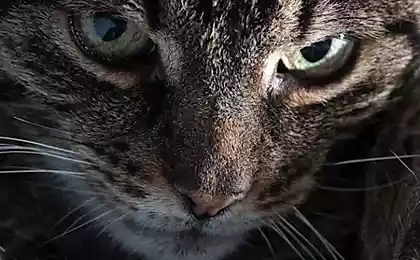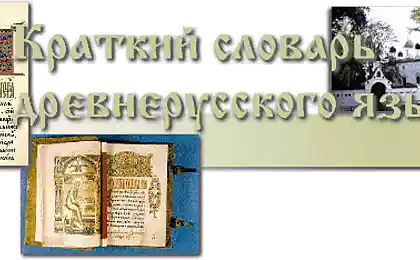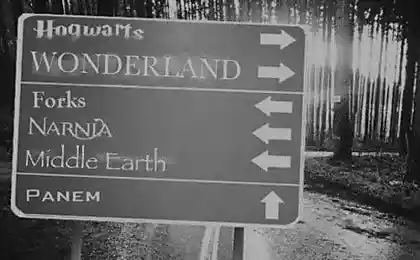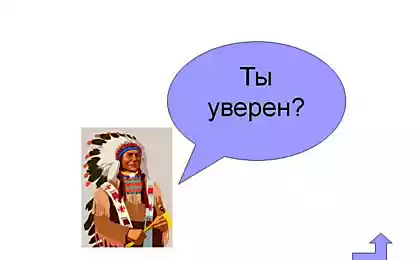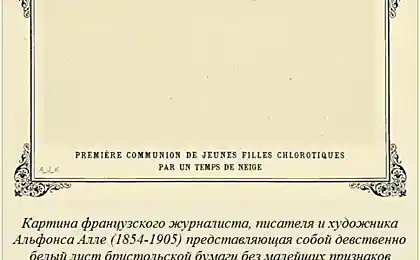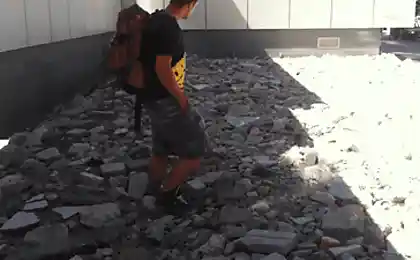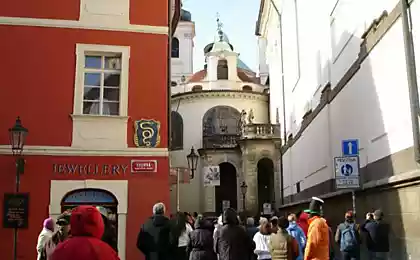945
Russkost

Many words that we perceive as native and clear, quite an interesting story. Seemingly by chance, they came to the Russian language. But we know that there are no coincidences random
 o
o • Rubbish
At the end of the 17th century French physician Mathieu Ghali treated his patients jokes. He gained such popularity that did not keep pace at all visits and their healing puns sent by mail. So there was the word "nonsense", which at that time meant - Healing joke, pun intended. Dr. immortalized his name, but now this concept has a completely different meaning.
• Station
The word is derived from the name of the place «Vauxhall» - a small park and entertainment center near London. Russian tsar, who visited this place, loved it - especially the railway. Afterwards, he ordered the British engineers to build a small railway from St. Petersburg to his country residence. One of the stations on this section of the railway was named "Station", and the name later became the Russian word for any railway station.
• Hooligan
The word hooligan - English origin. In one version of that name Houlihan wore once known London brawler, gives a lot of the hassle of city residents and the police. Name has become a household name, and the word international characterizing human breach public order.
• Orange
Until the XVI century, Europeans generally no concept of oranges had. Russian - even more so. We've not grow oranges! And then Portuguese sailors brought from China, these delicious orange balls. And they began to trade with neighbors. In Dutch "apple» - appel, and "Chinese» - sien. Borrowed from the Dutch word appelsien, is a translation of the French phrase Pomme de Chine - «apple from China».
• Doctor
It is known that in the old days were treated with various charms and spells. The ancient witch doctor said the patient something like this: "Go away, illness, shifting sands in the in the forest primeval ..." and muttering over zaneduzhivshim different words. According to the doctor - originally Slavic and derived from the word "vrati", which means "to speak", "start talking." It is interesting that on the same word is a "lie" that our ancestors also meant to "speak." It turns out that the ancient doctors lied? Yes, but the word was not originally contained a negative sense.
• Rascal
Ancient Rus did not know the Turkic word "pocket", because the money were then in special purses - purse. From the word "purse" and produced "cheater" - a specialist in theft of Moson.
• Restaurant
The word "restaurant" in French means "strengthen". This name was given in the XVIII century, one of the Parisian restaurants of its visitors after the host institution Boulanger introduced a number of dishes nutrient broth.
• Shit
The word "shit" is derived from the Proto-Slavic «govno», which means "cow" and was originally associated only with cow "scones". "Govyado" - "cattle", hence the same "beef", "beef". By the way, from the same Indo-European root and the English name of the cow - cow, as well as the shepherd of cows - cowboy. E. The term "fucking cowboy" - not a chance in it - a deep kinship.
• Heaven
One theory is that the Russian word for "heaven" comes from "no, no" and "the devil, demons" - literally a place free from evil / demons. However, another interpretation is probably closer to the truth. In most Slavic languages have words like "sky", and they have occurred, in all probability, from the Latin word "cloud» (nebula).
• Slates
In the Soviet Union known manufacturer of rubber slippers was a factory "Polymer" in Leningrad region Shales. Many buyers believed that embossed on the soles of the word "Shale" is the name of the shoe. Then the floor was included in the active vocabulary and become a synonym for the word "flip-flops".



